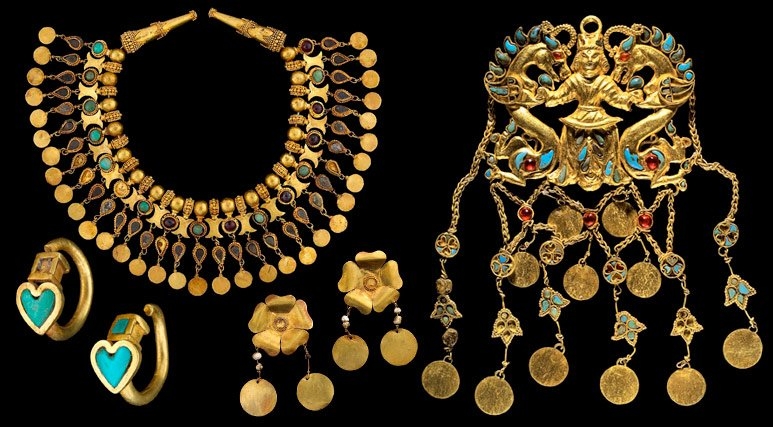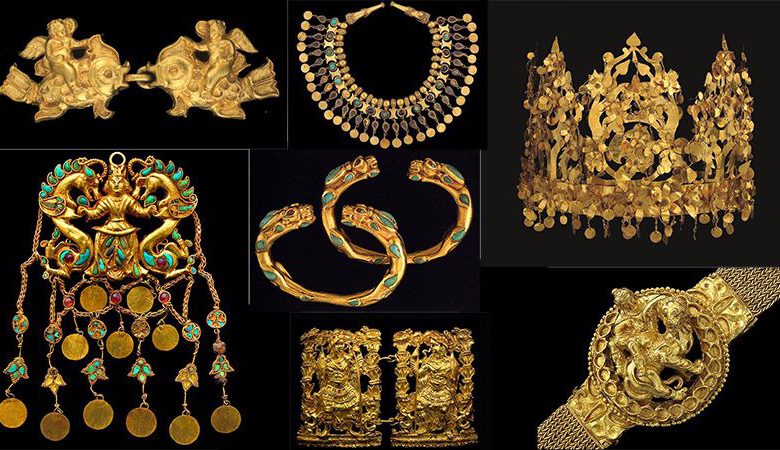In the wake of the Taliban’s swift takeover of Afghanistan following the withdrawal of US and UK troops, a haunting hunt has commenced for one of the world’s most revered collections of ancient artifacts – the Bactrian Treasure. With more than 20,000 golden pieces dating back over 2,000 years, this treasure trove stands as a testament to the rich history and cultural significance of the Ancient Silk Road.
Ahmadullah Wasiq, deputy head of the Taliban’s Cultural Commission, recently issued a chilling statement, indicating efforts to track down and recover the missing treasure. Speaking to Tolo News, Wasiq asserted that investigations were underway to determine the whereabouts of the priceless artifacts. He further warned that the Afghan government would take decisive action if any ancient items, including the Bactrian Treasure, were discovered to have been moved out of the country.

The Bactrian Treasure, unearthed over four decades ago by Soviet and Afghan archaeologists, was excavated from the graves of six affluent nomads in the Tela Tapa region of northern Afghanistan. Comprising an astonishing 21,145 pieces, the collection includes a breathtaking array of golden sculptures, coins, jewelry, and ceremonial objects adorned with semiprecious stones.

The significance of the Bactrian Treasure lies not only in its material wealth but also in its historical context. Discovered along the ancient trade routes of the Greco-Bactrian Kingdom, established during Alexander the Great’s reign around 300 B.C., these artifacts offer invaluable insights into the interconnected cultures of the Silk Road.




Despite efforts to safeguard the Bactrian Treasure, concerns over its security escalated with the Taliban’s resurgence. As Kabul fell to Taliban forces, the National Museum of Afghanistan issued a plea for assistance in preventing looting amidst the chaotic situation. Now, the treasure has vanished from the museum, raising fears for its preservation and future.
This isn’t the first time Afghanistan’s cultural heritage has come under threat. During the Taliban’s previous rule from 1996 to 2001, numerous historical artifacts, including the famed Buddhas of Bamiyan, fell victim to deliberate destruction. The international community, recognizing the significance of safeguarding Afghanistan’s cultural legacy, has expressed deep concern over the fate of the Bactrian Treasure.
As the search for the missing treasure continues, the world watches with bated breath, hoping for its safe recovery and the preservation of Afghanistan’s rich cultural heritage. The fate of these ancient artifacts serves as a poignant reminder of the enduring importance of protecting and cherishing our shared human history.